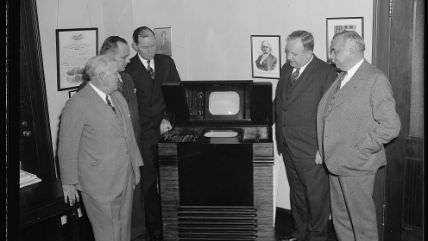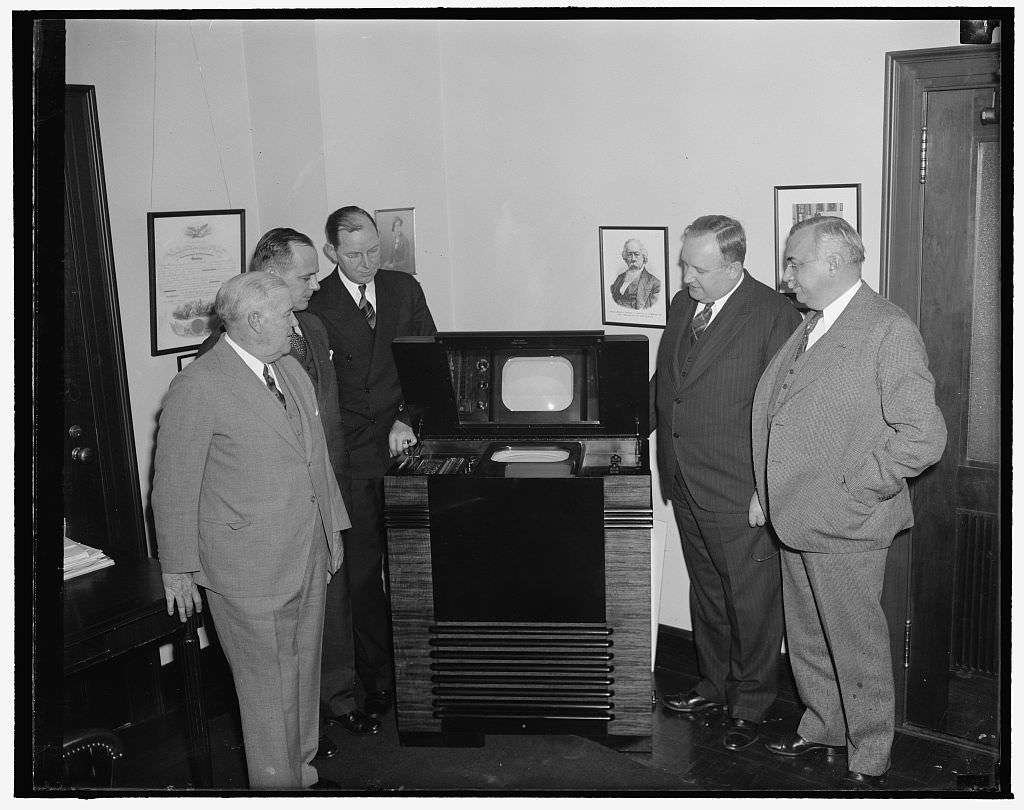'The FCC Won't Let Me Be,' Say Some Open Source Programmers
Proposed Rules from the FCC have sparked a lively debate within the tech community.


The Federal Communications Commission (FCC) has had considerable cultural relevance over the last two decades, making appearances in Eminem's "Without Me" circa 2002 and John Oliver's hilarious (if counterproductive from an open internet standpoint) "net neutrality" monologue.
In the immortal words of Slim Shady, "Guess who's back"?
On August 6, the FCC released proposed new rules for regulating wireless routers that sent some of the web's most esteemed tech fora into varying states of tense disquiet, technical discourse, and tertiary digression.
Open source tinkerers are particularly concerned about a provision that could arguably prevent them from modifying the firmware on their own routers. From the proposed rules:
Manufacturers of any radio including certified modular transmitters which includes a software defined radio must take steps to ensure that only software that has been approved with a particular radio can be loaded into that radio. The software must not allow the installers or end-user to operate the transmitter with operating frequencies, output power, modulation types or other radio frequency parameters outside those that were approved.
Users like to modify their routers' firmware for a variety of reasons, including improving network security, streamlining user interfaces, and experimenting with mesh-networking (effectively extending the range of a signal by allowing it to hop between intermediate nodes). A popular Lifehacker post advertises using Linux-based DD-WRT firmware to "turn your $60 router into a $600 router."
Some in the tech community, though, have urged their peers not to jump to worst-case conclusions about the actual consequences of the proposed rules. Jonathan Mayer of the Center for Internet and Society at Stanford Law School posted the following on a thread on Y-Combinator's Hacker News board:
(Background: I'm a computer security lawyer at Stanford. This ain't legal advice.) This is a misunderstanding. The FCC has not tried to ban Wi-Fi device modding. What it might be requiring is locked-down radios. And only radios. The phrasing of the recent guidance is unfortunately ambiguous, and calls out DD-WRT by name. But the original rules are clear [1], and staff guidance cannot trump Commission rules. What's more, an attempt to ban third-party software would be inconsistent with the FCC's previous policy. The agency fined Verizon, for instance, when it tried to block third-party tethering apps [2].
Mayer alluded to the ostensible goal of the rules, which is to prevent router radio modifications that would interfere with vital elements of the radio spectrum, such as airport weather radar frequencies. Others in the tech community, however, are concerned that even if the FCC's intentions are narrow, the rules may have either de jure or de facto unintended consequences.
Speaking to Techdirt, Harold Feld of Public Knowledge, who analyzes FCC policy, recognized a real-world purpose for the rule in protecting the aviation radar spectrum, but he nonetheless cautioned that "we don't want the FCC to accidentally write rules that are over-broad or subject to misinterpretation by companies." For instance, he fears manufacturers might find that it's easier to comply with the rule by designing routers that prevent general firmware mods outright than by "ringfencing" the radio specs alone.
That's because the rules as written seem to regulate the company that designs the router's radio and not just the end user thereof. Section (e) of the proposed rules excerpted above goes on to put the onus for preventing router modifications on the company designing the device:
Manufacturers may use means including, but not limited to the use of a private network that allows only authenticated users to download software, electronic signatures in software or coding in hardware that is decoded by software to verify that new software can be legally loaded into a device to meet these requirements.
As PC Magazine reports, a coalition of prominent tech policy organizations, including the Software Freedom Law Center and the Electronic Frontier Foundation, are sufficiently worried that the rules could be "bad for individuals and disrupt the market" that they launched the Save WiFi campaign.
For its part, the FCC has asked for public comments and feedback on the proposed rules. Save WiFi has written a letter to the FCC recommending changes to the rules in the interest of protecting user freedom and wireless innovation. If you're interested in sending comments to the FCC, the deadline has been extended to October 9, and the link is here. (Note: The FCC's website is undergoing maintenance over Labor Day weekend, so accessibility may vary.)
